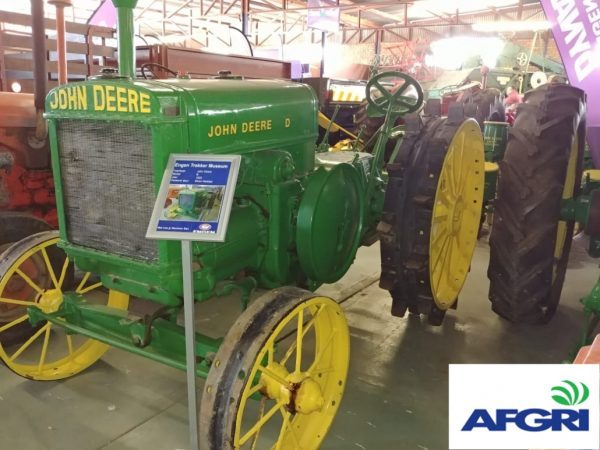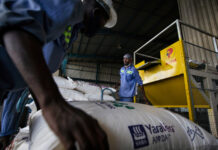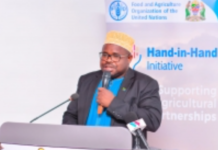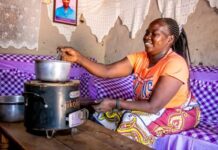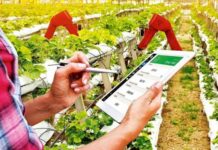AFGRI, one of South Africa’s leading agricultural services company, is firmly committed to developing a sustainable agricultural sector in South Africa, both through its own initiatives, as well as by partnering with the public and private sector to drive growth in the sector, which in turn will contribute to the country’s overall economic wellbeing.
In 2012, AFGRI set up Harvest Time Investments (HTI), a training and development programme focused on unlocking the potential of emerging black farmers through training, development and mentorship. Two years later, AFGRI further committed to assisting the development of emerging farmers, as well as towards other projects targeted at community and rural developments, through an agreement with the public sector, including the Department of Economic Development, the Department of Trade and Industry, the Department of Agriculture, Forestry and Fisheries, and the Department of Rural Development and Land Reform.
In terms of this agreement, AFGRI pledged R90 million, spending R60 million on emerging farmer development and R30 million on community support over a period of four years.
Today, the R90 million investment in farmer training and development and related corporate social investment (CSI) initiatives has resulted in a meaningful contribution to the economy. In the past four financial years[1] alone AGH and AFGRI, through CSI initiatives focused on food security, water security, poverty alleviation and education, have touched the lives of almost 60,000 beneficiaries through a total of 112 projects[2].
With respect to emerging farmers development, over 800 farmers have to date benefitted from the HTI programme, with over 18 400 hectares of crops planted, and an estimated 5 600 people supported by the income received. In addition, over 660 permanent jobs and almost 1 000 seasonal jobs were created.
“Not only did the investment in farmer training and development and CSI result in economic success stories for emerging farmers, but for the thousands of lives meaningfully improved in our communities,” says Tinus Prinsloo, CEO of AFGRI. “However, more than this, a vital goal of AFGRI’s is to promote sustainability, which is why we focus on training, mentorship and access to finance for emerging farmers, offering them ongoing support and working with them in partnership to cultivate success.”
Prinsloo adds that this approach has also encouraged entrepreneurship, with many of these farmers now having proper access to markets, purchasing additional equipment and growing their operations as a result.
With HTI now housed within AFGRI Group Holdings (AGH) – AFGRI’s parent holding company – where the focus will remain on supporting emerging farmers, AFGRI has launched Lemang Agricultural Services to specifically develop those black farmers who have reached the potential to become commercial farmers.
“This is essential for the future of the country, as well as food security, as the population grows and food demands increase. These farmers will also create much-needed jobs and provide a welcome boost to the economy,” states Prinsloo.
According to Marion Shikwinya, who heads up Lemang, it will support large black farmers ready to take the final steps towards becoming full-scale commercial farmers. This includes financial assistance and more. “We want to extend the experience and record we have already established to bolster yields, crop diversity and job creation in a sector which has traditionally contributed significantly to GDP in South Africa.”
Another AGH company, Abba Initiatives, has developed a unique farming programme that relies on father figures (the ‘Abba’) in communities to establish sustainable agrarian projects across Africa. Last year, Abba teamed up with the Youth Employment Service (YES) initiative and other corporate sponsors, including Nedbank and Toyota, to start the Tembisa Container Farming Project in support of urban agriculture.
Abba is providing training and skills development to 25 youths, with a focus initially on open field farming, aquaponics and hydroponics, with the ultimate goal being to develop a sustainable urban agricultural solution for South Africa. According to Tashmia Ismail, the CEO of YES, “A key focus for the YES hub model is the sustainability of the operations – we have to be thinking about long-term impact of our work and ensuring that the investment in infrastructure will have lasting economic benefits. If we are serious about changing the South African economy, we need to think differently about economic models and we are pleased to have identified industry partners who share a common vision.”
CEO of AGH, Chris Venter, wraps up the group’s strategy on this front, saying that AGH’s explicit goal is to enable food security across Africa. “Through dedicated investment and care, we now have a suite of services and products as well as the capability to assist developing black farmers – from the small-scale farmer right through to the farmer ready to join the ranks of commercial farming. We can guide and assist them every step of the way on this path, ensuring that our farmers have both the opportunity as well as access to everything in our arsenal in order to become thriving commercial farmers.”



